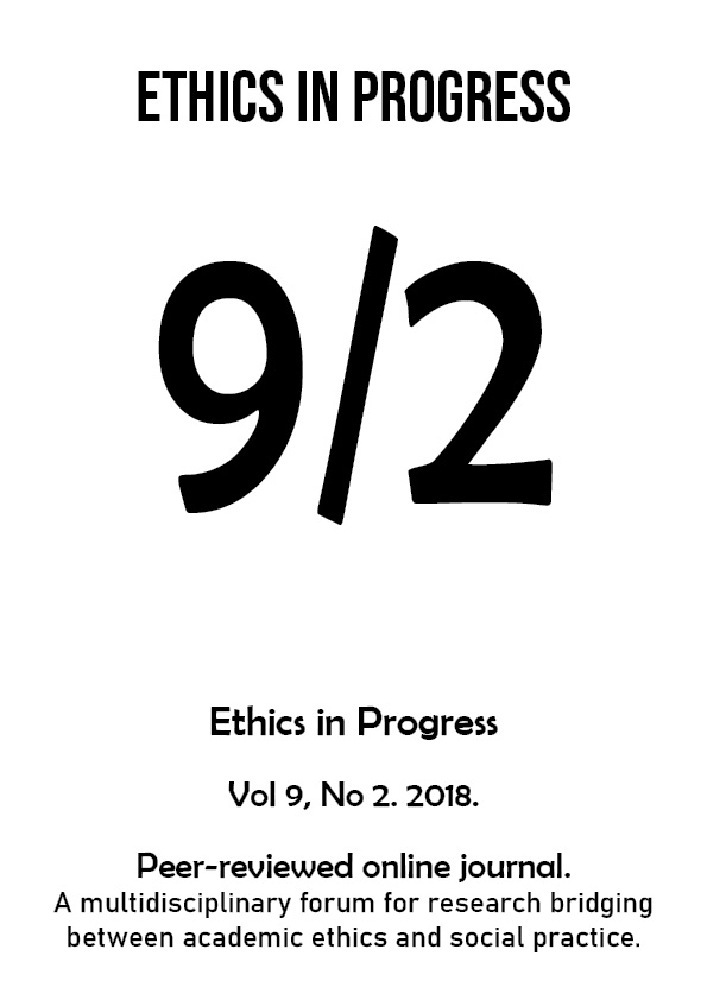Abstract
Higher education institutions in the United States have historically been tasked with the responsibility of scaffolding the moral development of students. Although empirical evidence suggests that attending colleges and universities can foster students’ moral development and reasoning, the effect of online higher education remains mainly unknown. The current study has examined the effect of two online psychology courses, Developmental Psychology and Research Methods Lab, and their respective assignments on students’ moral competence. The findings revealed that students’ moral competence in both courses was improved; this improvement was partly attributed to online group discussions in the Developmental psychology course. No other assignments were found to be significant contributors of students’ moral competence. Limitations and implications of the findings were discussed.
References
Boss J. A. 1994. “The Effect of Community Service Work on the Moral Development of College Ethics Students. Journal of Moral Education 23(2):183-98. Retrieved from https://digitalcommons.unomaha.edu/slcehighere d/87.
Desplaces D. E., Melchar D. E., Beauvais L. L., & Bosco S. M. 2007. “The Impact of Business Education on Moral Judgment Competence: An Empirical Study.” Journal of Business Ethics 74:73-87.
Colby A. & Kohlberg L. (with A. Abrahami, J. Gibbs, A. Higgins, K. Kauffman, M. Lieberman, M. Nissan, J. Reimer, D. Schrader, J. Snarey, & M. Tappan). 1987. The Measurement of Moral Judgment, Vols I and II. Cambridge University Press.
Cummings R., Maddux C., Cladiano A., & Richmond A. S. 2010. “Moral Reasoning of Education Students: The Effects of Direct Instruction in Moral Development Theory and Participation in Moral Dilemma Discussion.” Teachers College Record 112(3).
Johnston M. 1989. “Moral Reasoning and Teachers’ Understanding of Individualized Instruction.” Journal of Moral Education 18:45-59.
Kolb D. A. 1984. Experiential Learning: Experience as the Source of Learning and Development. Englewood Cliffs, N.J.: Prentice-Hall, Inc.
Kohlberg L. 1971. The Philosophy of Moral Education. New York, NY: Harper & Row.
Marina A. Klimenko, Nicholas Surdel, Kathryn Muir, Fuaad Sofia54
King P. & Mayhew M. 2002. “Moral Judgement Development in Higher Education: Insights from the Defining Issues Test.” Journal of Moral Education. doi 31.10.1080/0305724022000008106.
Lind G. (2014, March 24). Moral Competence Test (MCT), from http://www.uni-konstanz.de/ag-moral/mut/mjt-engl.htm.
Lind G. 2016. How to Teach Morality. Promoting Deliberation and Discussion, Reducing Violence and Deceit. Berlin: Logos.
Lind G. & Nowak E. 2015. “Kohlberg’s Unnoticed Dilemma—The External Assessment of Internal Moral Competence?,” in B. Zizek, D. Gartz, E. Nowak (Eds.), Kohlberg Revisited. Sense Publishers, Rotterdam – Taipei (139-53).
Mayhew M. J. & King P. 2008. “How Curricular Content and Pedagogical Strategies Affect Moral Reasoning Development in College Students.” Journal of Moral Education 37:17-40.
Mayhew M. J. & Engberg M. E. 2010. “Diversity and Moral Reasoning: How Negative Diverse Peer Interactions Affect the Development of Moral Reasoning in Undergraduate Students.” The Journal of Higher Education 81(4):459-88.
McNeel S. 1994. “College Teaching and Student Moral Development,” in J. Rest & D. Narvaez (Eds.), Moral Development in the Professions: Psychology and Applied Ethics. Hillsdale, NJ: Lawrence Erlbaum Associates (27-47).
Park M., Kjervik D., Crandell J., & Oermann M. H. 2012. “The Relationship of Ethics Education to Moral Sensitivity and Moral Reasoning Skills of Nursing Students.” Nursing Ethics 19(4):568-80. doi:10.1177/0969733011433922
Pearson 1996-2018. https://www.pearson.com/us/higher-education/program/Pearson-Education-MY-VIRTUAL-CHILD/PGM253641.html
Rest J. R. 1986. Moral Development: Advances in Research and Theory. New York: Praeger.
Saeidi-Parvaneh S. 2011. Moral, Bildung und Religion im Iran – Zur Bedeutung universitärer Bildung für die Entwicklung moralischer Urteils- und Diskursfähigkeit in einem religiös geprägten Land. [Morality, Education and Religion in Iran. On the Importance of University Education for the Development of Moral Judgment and Discourse Competence in a Religiously Shaped Country.] Doctoral dissertation, Department of Psychology, University of Konstanz. http://kops.ub.uni-konstanz.de/volltexte/2011/13107/
Schillinger M. 2006. Learning Environments and Moral Development: How University Education Fosters Moral Judgment Competence in Brazil and two German-Speaking Countries. Aachen: Shaker-Verlag.
St. Peters H. Y.Z . & Short N. 2018. “Cross-Cultural Service Learning as Pedagogy for Character Development in Occupational Therapy Doctoral Students.” The Open Journal of Occupational Therapy 4(6). Article 8. doi:10.15453/2168-6408.1493




